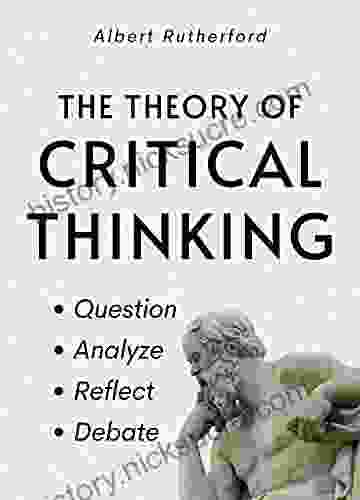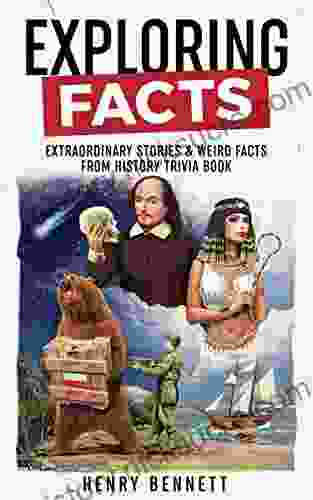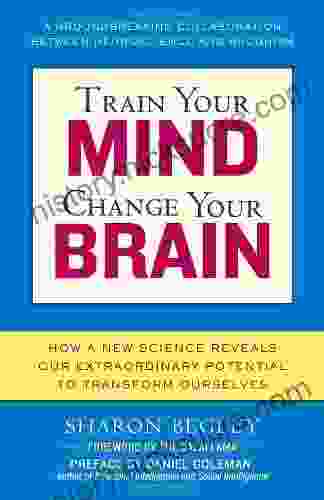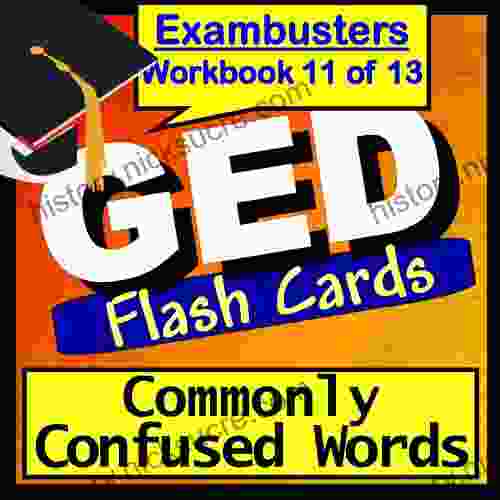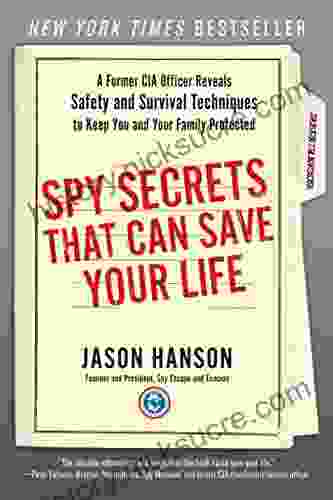The Theory of Critical Thinking: A Comprehensive Guide to Developing Rational Thinking Skills

Critical thinking is a cognitive skill that involves the ability to analyze information, identify biases, evaluate evidence, and form sound judgments. It is an essential tool for navigating the complex world of information and making informed decisions. In this article, we will explore the theory of critical thinking, its key elements, and practical strategies for developing this vital skill.
Key Elements of Critical Thinking
The theory of critical thinking identifies several key elements that contribute to effective critical thinking:
4.5 out of 5
| Language | : | English |
| File size | : | 1242 KB |
| Text-to-Speech | : | Enabled |
| Screen Reader | : | Supported |
| Enhanced typesetting | : | Enabled |
| X-Ray | : | Enabled |
| Word Wise | : | Enabled |
| Print length | : | 32 pages |
| Lending | : | Enabled |
1. Analysis
Critical thinkers are able to break down information into its component parts and identify the relationships between them. They can distinguish between facts, opinions, and inferences, and assess the credibility of sources.
2. Bias Identification
Bias refers to any factor that influences a person's judgment or perception. Critical thinkers are aware of their own biases and the biases that may be present in the information they are considering. They can evaluate information objectively and avoid making hasty s based on preconceived notions.
3. Evaluation of Evidence
The ability to evaluate evidence is crucial for critical thinking. Critical thinkers can weigh the strengths and weaknesses of different pieces of evidence and determine their relevance and reliability. They consider the source of the evidence, the context in which it was presented, and any potential biases that may affect its validity.
4. Sound Judgment
Critical thinking culminates in the ability to form sound judgments. Critical thinkers can draw logical s based on the evidence they have considered and avoid making hasty or uninformed decisions. They can communicate their s clearly and provide reasons to support their arguments.
Practical Strategies for Developing Critical Thinking
The theory of critical thinking provides a foundation for understanding the cognitive processes involved in this skill. To develop your critical thinking abilities, you can employ the following practical strategies:
1. Question Assumptions
Habitually question your own assumptions and the assumptions of others. Ask yourself why you believe something is true and what evidence supports your beliefs.
2. Gather Diverse Perspectives
Expose yourself to a wide range of opinions and viewpoints. Consider information from different sources, cultures, and disciplines to gain a multifaceted understanding of issues.
3. Analyze Arguments
Identify the arguments being presented and their underlying premises. Examine the logic of the arguments and look for any fallacies or errors in reasoning.
4. Evaluate Evidence
Consider the source, context, and reliability of evidence. Determine whether the evidence is relevant to the argument and whether it supports the being drawn.
5. Practice Inductive and Deductive Reasoning
Inductive reasoning involves drawing general s from specific observations. Deductive reasoning involves applying general principles to specific cases. Practice these reasoning skills to strengthen your ability to analyze information and make sound judgments.
Benefits of Critical Thinking
Developing strong critical thinking skills offers numerous benefits, including:
1. Improved Decision-Making
Critical thinking enables you to make more informed and rational decisions, whether in personal, professional, or social contexts.
2. Enhanced Problem-Solving
By breaking down problems and analyzing their root causes, critical thinkers can find creative and effective solutions.
3. Increased Resistance to Manipulation
Individuals with strong critical thinking skills are less susceptible to manipulation and can resist persuasive techniques that rely on emotion or deception.
4. Greater Intellectual Growth
Critical thinking promotes intellectual curiosity and a lifelong commitment to learning. It allows you to challenge assumptions, expand your knowledge, and develop a nuanced understanding of the world.
The theory of critical thinking provides a framework for understanding the cognitive processes involved in this essential skill. By practicing the strategies outlined in this article, you can develop your abilities to analyze information, identify biases, evaluate evidence, and form sound judgments. Critical thinking is a powerful tool that empowers you to make informed decisions, navigate complex issues, and contribute meaningfully to society. Embrace the theory of critical thinking and embark on a lifelong journey of intellectual growth and rational thought.
Alt Attribute Descriptions for Images:
* Diagram of the key elements of critical thinking: A schematic representation showing analysis, bias identification, evaluation of evidence, and sound judgment as interconnected components. * Illustration of a critical thinker questioning an argument: A person with a thoughtful expression, surrounded by question marks, representing the process of examining and challenging information. * Image of a group of diverse individuals discussing a topic: A representation of the importance of considering multiple perspectives and engaging in critical discussions. * Photograph of a person reading and taking notes: Depicting the process of gathering information and evaluating evidence for critical thinking.
4.5 out of 5
| Language | : | English |
| File size | : | 1242 KB |
| Text-to-Speech | : | Enabled |
| Screen Reader | : | Supported |
| Enhanced typesetting | : | Enabled |
| X-Ray | : | Enabled |
| Word Wise | : | Enabled |
| Print length | : | 32 pages |
| Lending | : | Enabled |
Do you want to contribute by writing guest posts on this blog?
Please contact us and send us a resume of previous articles that you have written.
 Fiction
Fiction Non Fiction
Non Fiction Romance
Romance Mystery
Mystery Thriller
Thriller SciFi
SciFi Fantasy
Fantasy Horror
Horror Biography
Biography Selfhelp
Selfhelp Business
Business History
History Classics
Classics Poetry
Poetry Childrens
Childrens Young Adult
Young Adult Educational
Educational Cooking
Cooking Travel
Travel Lifestyle
Lifestyle Spirituality
Spirituality Health
Health Fitness
Fitness Technology
Technology Science
Science Arts
Arts Crafts
Crafts DIY
DIY Gardening
Gardening Petcare
Petcare Marge Foley
Marge Foley Marcia Nathai Balkissoon
Marcia Nathai Balkissoon Richard Griffith
Richard Griffith Charles C Patrick
Charles C Patrick Arous Brocken
Arous Brocken Corey Wade
Corey Wade Justin A Reynolds
Justin A Reynolds Aquila Chrysaetos
Aquila Chrysaetos Cynthia Chen Mcternan
Cynthia Chen Mcternan Dave Rineberg
Dave Rineberg Jayne Storey
Jayne Storey Shane Parrish
Shane Parrish Roberta M Gilbert
Roberta M Gilbert Rebecca Schiller
Rebecca Schiller Jordan Christy
Jordan Christy George Kimball
George Kimball Samantha Michaels
Samantha Michaels Jen L Grey
Jen L Grey Gene Hamilton
Gene Hamilton Tim Collins
Tim Collins The Pinnacle Review
The Pinnacle Review Felicity Pulman
Felicity Pulman Mark Sundeen
Mark Sundeen Kristen Radtke
Kristen Radtke Shavona L Floyd
Shavona L Floyd Db King
Db King Sarah Guthals
Sarah Guthals Thema Bryant Davis
Thema Bryant Davis Robin Horsfall
Robin Horsfall Jason Reynolds
Jason Reynolds Carolyn Jessop
Carolyn Jessop Dianne Lake
Dianne Lake Spanked Teen
Spanked Teen Tina Nicastro Maom Lac
Tina Nicastro Maom Lac Colleen Hoover
Colleen Hoover John Miller
John Miller Susie Johns
Susie Johns Aref Jeribi
Aref Jeribi Barbara Brown Taylor
Barbara Brown Taylor Antonia Bolingbroke Kent
Antonia Bolingbroke Kent Craig Caudill
Craig Caudill Justin Goldman
Justin Goldman Elton Moraes
Elton Moraes Louie Giglio
Louie Giglio Stephanie Mcmurrich Roberts Phd
Stephanie Mcmurrich Roberts Phd Ken Adcock
Ken Adcock Erin Gruwell
Erin Gruwell Mark Kurlansky
Mark Kurlansky Laurence Gardner
Laurence Gardner Keiko Tobe
Keiko Tobe 1st Ed 2020 Edition Kindle Edition
1st Ed 2020 Edition Kindle Edition Emma Frisch
Emma Frisch Zac Williams
Zac Williams Walter H Gmelch
Walter H Gmelch Erfun Geula
Erfun Geula Daniela Sacerdoti
Daniela Sacerdoti Silvana Condemi
Silvana Condemi Robert J Sweet
Robert J Sweet Jim Gourley
Jim Gourley Ernest Thompson Seton
Ernest Thompson Seton Grant Cunningham
Grant Cunningham Robert Solomon
Robert Solomon Brett Friedman
Brett Friedman Stella Cottrell
Stella Cottrell Michael J Hathaway
Michael J Hathaway Steven L Emanuel
Steven L Emanuel Philip C Plait
Philip C Plait Jessica Wapner
Jessica Wapner Julie Hall
Julie Hall Benny Lewis
Benny Lewis Shanaya Summer
Shanaya Summer Mike Malaska
Mike Malaska Prince Daniels Jr
Prince Daniels Jr Greg Cruthers
Greg Cruthers Derek Dellinger
Derek Dellinger Peter Newby
Peter Newby Jennifer Karnopp
Jennifer Karnopp Chris Carmichael
Chris Carmichael Jim Ross
Jim Ross Proper Education Group
Proper Education Group Second Edition Revised Kindle Edition
Second Edition Revised Kindle Edition Linda Hibbs
Linda Hibbs Cheng Liu
Cheng Liu Corrine Morgan Thomas
Corrine Morgan Thomas James Atkinson
James Atkinson Arrl Inc
Arrl Inc Jason Brick
Jason Brick Jenny Hall
Jenny Hall Megan Whalen Turner
Megan Whalen Turner Katie Rain Hill
Katie Rain Hill Art Smith
Art Smith Winifred Conkling
Winifred Conkling Joseph Distefano Iii
Joseph Distefano Iii Torre Deroche
Torre Deroche Melissa Wagner
Melissa Wagner Michael Morgan
Michael Morgan Naoko Abe
Naoko Abe Sarah H Parcak
Sarah H Parcak Gaia Vince
Gaia Vince Go Books
Go Books Irfan Ahmad
Irfan Ahmad Simon Singh
Simon Singh Russell Elkins
Russell Elkins Todd Michael St Pierre
Todd Michael St Pierre J Robert King
J Robert King Richard Sale
Richard Sale Sharon Begley
Sharon Begley Martin Ganda
Martin Ganda Jacki Pritchard
Jacki Pritchard Susan B Bastable
Susan B Bastable Pharmacology University
Pharmacology University David J Ley
David J Ley Antony Felix
Antony Felix Sara Wheeler
Sara Wheeler Diana Raab
Diana Raab Antonio Diego
Antonio Diego Phil Genova
Phil Genova Michael Pearle
Michael Pearle Lawrence J Cohen Phd
Lawrence J Cohen Phd Lj Andrews
Lj Andrews Ton Viet Ta
Ton Viet Ta Julyen Rose
Julyen Rose Conn Iggulden
Conn Iggulden Hendrik Ebbers
Hendrik Ebbers Paige Rawl
Paige Rawl Mark Fisher
Mark Fisher Jessica Dixie Mills
Jessica Dixie Mills Jody Houser
Jody Houser Eliana De Las Casas
Eliana De Las Casas Carl Sagan
Carl Sagan Sahara Foley
Sahara Foley Robert J Sternberg
Robert J Sternberg Eugene V Resnick
Eugene V Resnick Joshua Enyart
Joshua Enyart Paul Ortiz
Paul Ortiz Ken Setterington
Ken Setterington Henry Bennett
Henry Bennett Peter Ballin
Peter Ballin Michelle Segar Phd
Michelle Segar Phd Dan Michaelson
Dan Michaelson Anya Hayes
Anya Hayes Richard Grant
Richard Grant Nigel Foster
Nigel Foster Iain Mcgilchrist
Iain Mcgilchrist Joni L Mihura
Joni L Mihura Sean Poage
Sean Poage Herbert L Gravitz
Herbert L Gravitz Carrie Shuchart
Carrie Shuchart Inc Barcharts
Inc Barcharts Jessica Joelle Alexander
Jessica Joelle Alexander Karema Mcghee
Karema Mcghee Harald E L Prins
Harald E L Prins George Orwell
George Orwell Thomas H Davenport
Thomas H Davenport Kelly Jensen
Kelly Jensen Virginia M Axline
Virginia M Axline Craig L Farnsworth
Craig L Farnsworth Lindsay Powers
Lindsay Powers Joe Oswald
Joe Oswald Robert Clark
Robert Clark Anu Partanen
Anu Partanen Peter Aitchison
Peter Aitchison Liz Wiseman
Liz Wiseman Colleen Doyle Bryant
Colleen Doyle Bryant Jeff Galloway
Jeff Galloway Paul D Ellis
Paul D Ellis David J Anderson
David J Anderson J R Ward
J R Ward Ta Nehisi Coates
Ta Nehisi Coates Justi Carey
Justi Carey Geraldine Brooks
Geraldine Brooks Richard Fortey
Richard Fortey Marco Stiantoni
Marco Stiantoni Chris Duff
Chris Duff H W Brands
H W Brands Meg Meeker
Meg Meeker Odessa Gillespie Black
Odessa Gillespie Black Hamish Haswell Smith
Hamish Haswell Smith Wyatt Mclaren
Wyatt Mclaren Michael Wenz
Michael Wenz Frank Close
Frank Close John J Donohue
John J Donohue Matt Appling
Matt Appling Regan Parker
Regan Parker Donald B Deyoung
Donald B Deyoung Claudia Sanborn
Claudia Sanborn Eric Coll
Eric Coll George J Sanchez
George J Sanchez Sherry Blackman
Sherry Blackman Marie Tillman
Marie Tillman Rick Riordan
Rick Riordan Nystce Exam Secrets Test Prep Team
Nystce Exam Secrets Test Prep Team Mira Ptacin
Mira Ptacin Ronald Mangravite
Ronald Mangravite Jacqueline Melvin
Jacqueline Melvin Kay Elder
Kay Elder Antoine Savine
Antoine Savine Jackson Carter
Jackson Carter Stephanie R Haynes
Stephanie R Haynes John Booss
John Booss Joy Jones
Joy Jones Brian Morris
Brian Morris Christina Thompson
Christina Thompson Gary Morris
Gary Morris William Lanouette
William Lanouette Cari Rosen
Cari Rosen Sally Huss
Sally Huss April Lara
April Lara Stephen Robson
Stephen Robson Jodi Lee
Jodi Lee Harry Vardon
Harry Vardon Miles Olson
Miles Olson Helen Leigh
Helen Leigh Anya Kuvarzina
Anya Kuvarzina Stephen E Dew
Stephen E Dew Shari Stauch
Shari Stauch Susy Callory
Susy Callory Julie Tallard Johnson
Julie Tallard Johnson Philip Gerard
Philip Gerard Supersummary
Supersummary Dr Mark Sircus
Dr Mark Sircus David Klausmeyer
David Klausmeyer Marie Lu
Marie Lu Theodore Kendris
Theodore Kendris John S Mbiti
John S Mbiti Lessie Myles
Lessie Myles Mike Liner
Mike Liner Mario Batali
Mario Batali Leigh Cowart
Leigh Cowart Chelsea Hanson
Chelsea Hanson Richard A Horsley
Richard A Horsley John Snygg
John Snygg James L Swanson
James L Swanson Ariella Moon
Ariella Moon Joseph F Healey
Joseph F Healey Fiore Tartaglia
Fiore Tartaglia Joe Kelsey
Joe Kelsey Philip S Harrington
Philip S Harrington Kevin Brunette
Kevin Brunette Gigi Sayfan
Gigi Sayfan Chris Albon
Chris Albon Paul Lockhart
Paul Lockhart Tom Igoe
Tom Igoe Ian Freeman
Ian Freeman Kimberly Seals Allers
Kimberly Seals Allers Territory Supply
Territory Supply Eli Lizorkin Eyzenberg
Eli Lizorkin Eyzenberg Charlie Meyers
Charlie Meyers Dawn Hogue
Dawn Hogue R Scott Jones
R Scott Jones Kate Barrows
Kate Barrows Krysten Harlow
Krysten Harlow Ron Kittle
Ron Kittle Melissa Sperka
Melissa Sperka Michael Walker
Michael Walker Christopher Van Tilburg
Christopher Van Tilburg Headquarters Department Army
Headquarters Department Army Jerzy Jezierski
Jerzy Jezierski David Warriner
David Warriner Gary Jobson
Gary Jobson Pedro Casal
Pedro Casal Benoit Mandelbrot
Benoit Mandelbrot Mark Harper
Mark Harper Philip Pullman
Philip Pullman Stephen Joseph
Stephen Joseph Doug Gelbert
Doug Gelbert Lenyfer Garrido
Lenyfer Garrido Heather Renee
Heather Renee Abby Knox
Abby Knox Philip Mcmichael
Philip Mcmichael Dan Jones
Dan Jones Lynn Marriott
Lynn Marriott Michael Symon
Michael Symon Rael Isacowitz
Rael Isacowitz Jane R Hirschmann
Jane R Hirschmann Jeremy Paxman
Jeremy Paxman Don Kirk
Don Kirk Barbara Pachter
Barbara Pachter Carleen Eaton
Carleen Eaton Chuck Carlson
Chuck Carlson Gina Ford
Gina Ford Erving Goffman
Erving Goffman Reynaldo S Galang
Reynaldo S Galang Markus Zusak
Markus Zusak Karl F Kuhn
Karl F Kuhn Sherry Thomas
Sherry Thomas Peggy A Houglum
Peggy A Houglum Panos Y Papalambros
Panos Y Papalambros Sasha Issenberg
Sasha Issenberg Tashie Bhuiyan
Tashie Bhuiyan Kathleen Hale
Kathleen Hale Tigran Bagdasaryan
Tigran Bagdasaryan Tharik Hussain
Tharik Hussain Kevin Salwen
Kevin Salwen Ogi Ogas
Ogi Ogas Austyn Lee
Austyn Lee Martha Cheng
Martha Cheng Jessie James Decker
Jessie James Decker Abbi Glines
Abbi Glines Steve Pease
Steve Pease Jason Hanson
Jason Hanson Liz Lee Heinecke
Liz Lee Heinecke June Goulding
June Goulding Emilio Iodice
Emilio Iodice Joy Nash
Joy Nash Jennifer Scribner
Jennifer Scribner Sophie Gonzales
Sophie Gonzales Michael Mccree
Michael Mccree Mila Markle
Mila Markle James Cordrey
James Cordrey Andrew Miller
Andrew Miller Henrik Gert Larsen
Henrik Gert Larsen Jean Beaman
Jean Beaman Karen Ehman
Karen Ehman John Derbyshire
John Derbyshire Melyssa St Michael
Melyssa St Michael Simon Pridmore
Simon Pridmore Harvey Berman
Harvey Berman Stuart Tyson Smith
Stuart Tyson Smith Maia Szalavitz
Maia Szalavitz Michael Wisehart
Michael Wisehart Robbie Thompson
Robbie Thompson Julie Murphy
Julie Murphy Victoria Duerstock
Victoria Duerstock Joe Farinaccio
Joe Farinaccio Gary Paulsen
Gary Paulsen Antony Cummins
Antony Cummins Susan Campbell Bartoletti
Susan Campbell Bartoletti Bernard Darwin
Bernard Darwin Herbert Warren Wind
Herbert Warren Wind Jef Aldrich
Jef Aldrich Jon Finkel
Jon Finkel Deirdre Dolan
Deirdre Dolan Tamim Ansary
Tamim Ansary Paula Hendricks
Paula Hendricks Rick L Huffman
Rick L Huffman Creek Stewart
Creek Stewart Randy Gerke
Randy Gerke Antonia Felix
Antonia Felix Alan Bass
Alan Bass Karen Newell
Karen Newell Caroline Gallup
Caroline Gallup Kindle Edition
Kindle Edition Douglas Riley
Douglas Riley Mr Michael Quilty Maguire
Mr Michael Quilty Maguire Jennifer M Bay Williams
Jennifer M Bay Williams Shannon O Gorman
Shannon O Gorman Tom Burns
Tom Burns James Porzio
James Porzio Sonia Weyers
Sonia Weyers Tim Macwelch
Tim Macwelch Tommy Nelson
Tommy Nelson Roger Kahn
Roger Kahn Lauren Kahl
Lauren Kahl Heather Turgeon
Heather Turgeon Daniel R Montello
Daniel R Montello Steve Sheward
Steve Sheward Michelle Quach
Michelle Quach Elisabeth Sheff
Elisabeth Sheff Bart Yasso
Bart Yasso Tom Wolfe
Tom Wolfe 2nd Edition Kindle Edition
2nd Edition Kindle Edition Denny Emerson
Denny Emerson Michelle Oberman
Michelle Oberman Karen Gravelle
Karen Gravelle Peter Nabokov
Peter Nabokov William Murakami Brundage
William Murakami Brundage Dan Blanchard
Dan Blanchard Jean Anthelme Brillat Savarin
Jean Anthelme Brillat Savarin Amy R Carpenter
Amy R Carpenter Craig Storti
Craig Storti Budd Bailey
Budd Bailey Ian Condry
Ian Condry Julitta Korol
Julitta Korol Jeff Mayers
Jeff Mayers Bradford Angier
Bradford Angier Peggy Mohan
Peggy Mohan Ehren Myers
Ehren Myers Chandelle Lavaun
Chandelle Lavaun Carolyn Henry
Carolyn Henry Pat Brooks
Pat Brooks Robert Wright
Robert Wright Colin Stroud
Colin Stroud Steve Bo Keeley
Steve Bo Keeley Dr Lucie Rivera
Dr Lucie Rivera Michael A Cremo
Michael A Cremo J Hannigan
J Hannigan Bill Keenan
Bill Keenan Brandon Royal
Brandon Royal Jenny B Jones
Jenny B Jones Dm Fitzgerald
Dm Fitzgerald Archie Kalokerinos
Archie Kalokerinos Giovanni Amato
Giovanni Amato Gregg Braden
Gregg Braden James C Dobson
James C Dobson Tara Grayce
Tara Grayce Thomas Celentano
Thomas Celentano George Sandford
George Sandford Katharine A Phillips
Katharine A Phillips Ji Kim
Ji Kim Mark Broadie
Mark Broadie Sara Lyon
Sara Lyon David Robinson
David Robinson Ennki Hakari
Ennki Hakari Cara Natterson
Cara Natterson Jennifer Comeaux
Jennifer Comeaux Grayson Sinclair
Grayson Sinclair Michael Tyler
Michael Tyler Jonathan Benson
Jonathan Benson You Fuguruma
You Fuguruma Marty Smith
Marty Smith John Vonhof
John Vonhof Mamma Margaret
Mamma Margaret Bonnie Landry
Bonnie Landry Erik Molvar
Erik Molvar Jenny Moore
Jenny Moore Alessandra Belloni
Alessandra Belloni Estelle Frankel
Estelle Frankel Yassine Tounsi
Yassine Tounsi Anthony Idalion
Anthony Idalion Mark Woods
Mark Woods Daniel Bezman
Daniel Bezman P J Capelotti
P J Capelotti Dennis J Sweeney
Dennis J Sweeney Charles C Pinter
Charles C Pinter My Daily Russian
My Daily Russian Steve Raible
Steve Raible Zigzag English
Zigzag English James Ori
James Ori Deborah Miller
Deborah Miller Clara E Hill
Clara E Hill William Hanson
William Hanson Lara Kolawole
Lara Kolawole Tasha Powers
Tasha Powers Patricia Ottaviano
Patricia Ottaviano Stephanie Dalley
Stephanie Dalley Richard Eng
Richard Eng Louise Douglas
Louise Douglas Marc Sedaka
Marc Sedaka Roger Guay
Roger Guay Jerry R Thomas
Jerry R Thomas Tracy Owens
Tracy Owens Ruth Albee
Ruth Albee Jonathan Robinson
Jonathan Robinson Harvey Penick
Harvey Penick Austin M Francis
Austin M Francis Donald Frias
Donald Frias Mark Stavish
Mark Stavish Laura Stamm
Laura Stamm Matthew M Hurley
Matthew M Hurley Laurie Halse Anderson
Laurie Halse Anderson Maya Angelou
Maya Angelou Gia Scott
Gia Scott Lou Paget
Lou Paget Robert B Stone
Robert B Stone Leon Edward
Leon Edward J T Burns
J T Burns Rebecca Stobaugh
Rebecca Stobaugh Laura Taylor Namey
Laura Taylor Namey Nancy Clark
Nancy Clark Revised Edition Kindle Edition
Revised Edition Kindle Edition Joe Brooks
Joe Brooks John N Maclean
John N Maclean
Light bulbAdvertise smarter! Our strategic ad space ensures maximum exposure. Reserve your spot today!
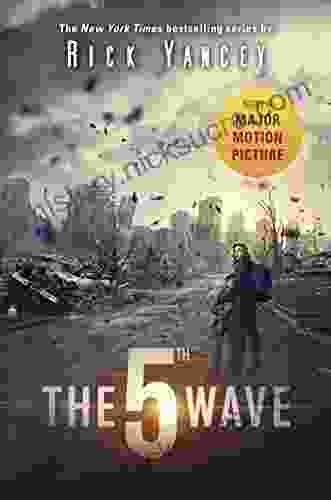
 Donovan CarterUnveiling the Thrilling Apocalypse of The 5th Wave: A Literary and Cinematic...
Donovan CarterUnveiling the Thrilling Apocalypse of The 5th Wave: A Literary and Cinematic...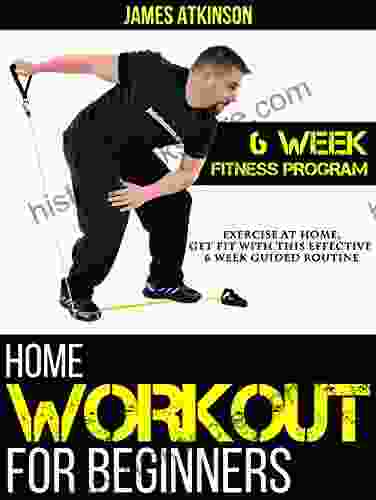
 Frank MitchellThe Ultimate Home Workout Guide for Beginners: Get Fit in the Comfort of Your...
Frank MitchellThe Ultimate Home Workout Guide for Beginners: Get Fit in the Comfort of Your... Ira CoxFollow ·9k
Ira CoxFollow ·9k Brenton CoxFollow ·16.4k
Brenton CoxFollow ·16.4k Denzel HayesFollow ·14.7k
Denzel HayesFollow ·14.7k Steve CarterFollow ·6.6k
Steve CarterFollow ·6.6k Scott ParkerFollow ·17.6k
Scott ParkerFollow ·17.6k Gus HayesFollow ·5.6k
Gus HayesFollow ·5.6k Gabriel HayesFollow ·2.6k
Gabriel HayesFollow ·2.6k Herman MitchellFollow ·6.7k
Herman MitchellFollow ·6.7k
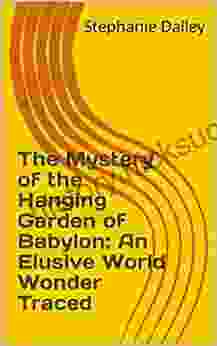
 Bernard Powell
Bernard PowellAn Elusive World Wonder Traced
For centuries, the...
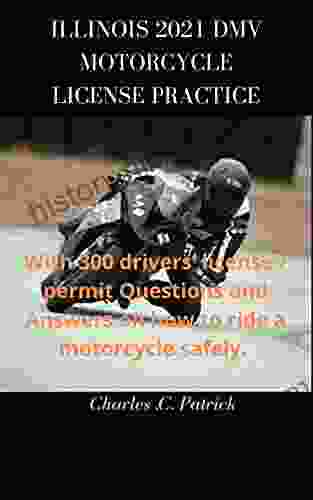
 Samuel Ward
Samuel WardAce Your Motorcycle Permit Test: 300 Essential Questions...
Obtaining a...
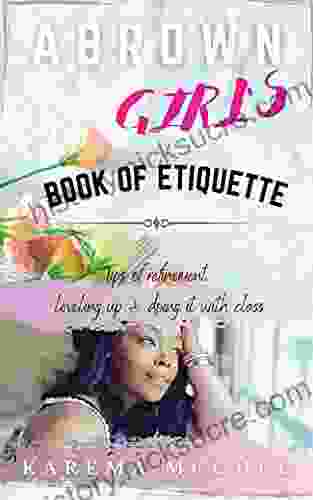
 Boris Pasternak
Boris PasternakTips for Leveling Up Refinement: Doing it With Class
Refinement is a...
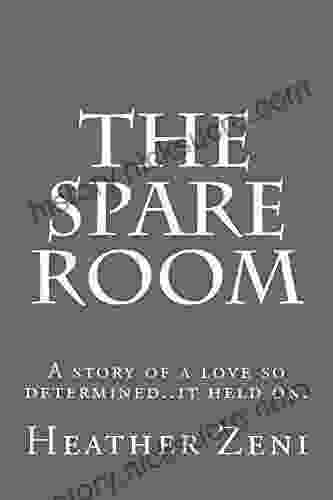
 Willie Blair
Willie BlairThe Spare Room: A Haven for Art and Creativity in London
The Spare Room is a unique and inspiring...
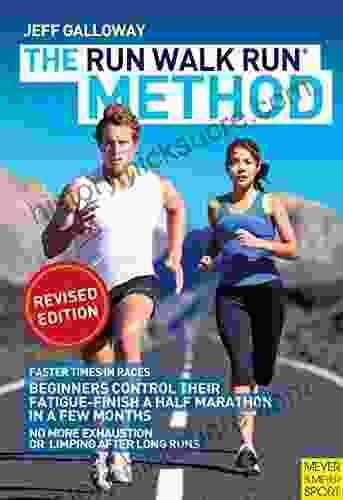
 Howard Blair
Howard BlairThe Run-Walk-Run Method: Your Gateway to Running Success
Unlock Your Inner Runner ...
4.5 out of 5
| Language | : | English |
| File size | : | 1242 KB |
| Text-to-Speech | : | Enabled |
| Screen Reader | : | Supported |
| Enhanced typesetting | : | Enabled |
| X-Ray | : | Enabled |
| Word Wise | : | Enabled |
| Print length | : | 32 pages |
| Lending | : | Enabled |


